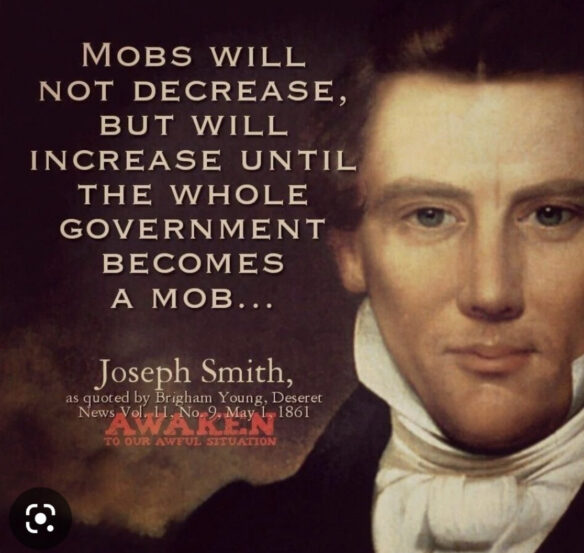We urge all readers to take a look at Prof. Ralph Hancock’s excellent articles on BYU. As many readers know, there is widespread dissatisfaction among Latter-day Saints regarding the type of education students are receiving at BYU, specifically BYU-Provo, but also other BYU institutions.
To summarize the dissatisfaction from the conservative and traditional perspective, the concern is that BYU is becoming too worldly and embracing too many “woke” causes. But progressives are also unhappy that BYU is not like other universities in the U.S.
Prof. Hancock addresses these are other issues here.
Clearly something is stirring at Brigham Young University. The university is re-examining its fundamental mission, taking stock of how it has drifted away from this mission, and undertaking a realignment with that mission. All Latter-day Saints, and indeed all friends of religious higher education in the United States, have a stake in this challenging ongoing process. The university’s leading officers, under the direction of the Commissioner of Church Education, Clark Gilbert, and of the Board of Trustees in Salt Lake City, have addressed the university audience repeatedly, clearly, and emphatically — especially over the last two years — concerning the need to realign BYU with its distinctive religious as well as intellectual mission as a university sponsored by the Church of Jesus Christ of Latter-day Saints.
It is much less clear, though, how these efforts to redirect BYU will unfold or what will be the eventual outcome of the present ferment. This article is mainly a reflection on the university’s annual conference, August 22, 2022, as well as on meetings and conversations at the college and department level that same day, and on subsequent reverberations throughout the institution that I have witnessed directly or that have been reported to me by BYU colleagues who share my concerns. I aim both to clarify the nature of the changes being called for by BYU leadership and to explain the very significant obstacles that stand in the way of these changes. Let me say at the outset that I wholly embrace the present call for mission realignment, and that I also understand that the obstacles to it are in many cases structural and not a result of deliberate opposition or disloyalty on the part of recalcitrant faculty.
As I will show below, President Kevin Worthen and Vice President Shane Reese made it very clear in their respective addresses on August 22, 2022 to the whole BYU community — and to the whole faculty — that improved alignment with the Church and the Restored Gospel is a high priority in the school’s updated strategic planning. VP Reese, in particular, offered some very bold and suggestive reflections on BYU’s need to articulate a “gospel methodology.” What remains unclear is just how the re-commitment to a gospel-centered education approach is to be articulated and just how this mission realignment is to be conceived and implemented, given the university’s deep involvement with and dependence on the mainstream establishment of higher education in the United States. I will argue, further, on the basis of observations at the “operational” level of the university (academic colleges and departments), that in the absence of a clear and substantive articulation and organizational incentivizing of the administration’s mandate to integrate religious faith and intellectual learning, the faculty as a whole will likely continue in their familiar professional grooves, and that many professors will continue to interpret gospel imperatives in ways that align conveniently with the humanistic religion, now largely driven by victimhood identity politics, that is prominent in the mainstream academy.
Finally, returning to the most important message from the annual university conference, I intend to show that a careful reading of Elder Christofferson’s speech of August 22 provides the key to a fuller and more practicable articulation of BYU’s mission and shows the way forward to a difficult and gradual but necessary implementation.
Continue reading →

